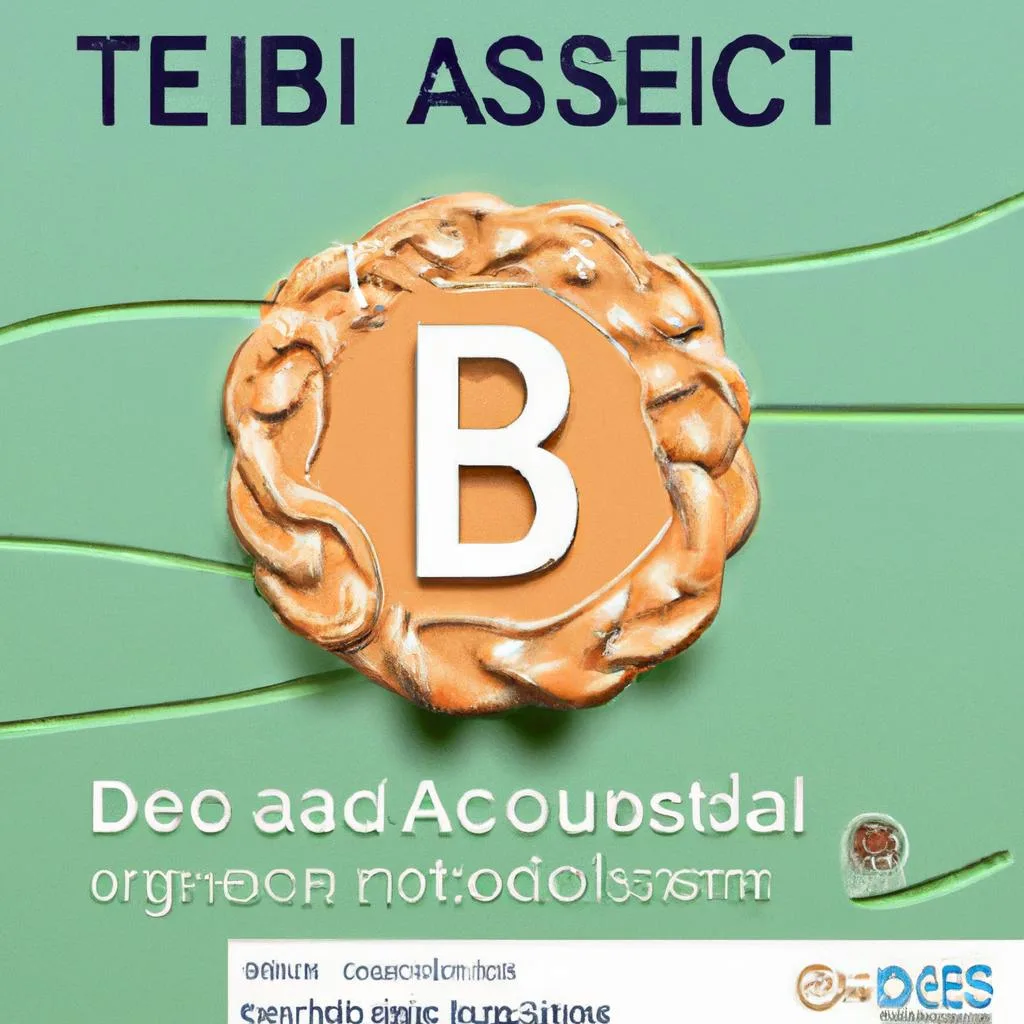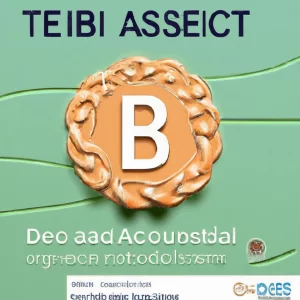Trust is a crucial element in both personal and professional relationships. In the legal sphere, trust plays a crucial role in transactions, agreements, and legal processes. The ABCD model is a framework that encapsulates the elements of trust and provides a deeper understanding of trustworthiness. In this article, we will explore the ABCD model of trust and its significance in the legal landscape. As experienced lawyers at Morgan Legal Group, based in New York City, we specialize in estate planning, probate, elder law, wills, and trusts. Join us as we unravel the intricacies of the ABCD model and its implications in building and maintaining trust in various legal contexts.
Understanding the ABCD Model of Trust
The ABCD model is a framework that helps individuals and organizations understand the different elements that make up trust. In this model, trust is broken down into four key components: Ability, Benevolence, Integrity, and Consistency. These elements play a crucial role in building and maintaining trust in any relationship or interaction.
Applying the ABCD model can help assess the trustworthiness of others, improve one’s own trustworthiness, and navigate complex trust-related situations more effectively. By examining each component individually, a deeper insight into the dynamics of trust can be gained, leading to more informed decisions about who to trust and how to build trust with others.
Key Components of the ABCD Model
The ABCD model outlines the key components necessary for building trust in any relationship or organization. Understanding these components is crucial for establishing and maintaining strong and lasting trust bonds. In this model, the four key components are Ability, Benevolence, Integrity, and Consistency.
Ability refers to the skills, knowledge, and competence of the individual or organization to fulfill their promises and commitments. Benevolence relates to the goodwill, kindness, and concern that the parties demonstrate towards each other. Integrity is about honesty, ethical behavior, and keeping promises. Finally, Consistency involves acting in a reliable, predictable, and dependable manner over time.
A table showing the components is below:
| Component | Description |
| Ability | Skills, knowledge, and competence to fulfill promises |
| Benevolence | Goodwill, kindness, and concern towards others |
| Integrity | Honesty, ethical behavior, and keeping promises |
| Consistency | Reliability, predictability, and dependability over |
| | time |
Implementing the ABCD Model in Estate Planning
The ABCD model can also be applied in estate planning to ensure a comprehensive and secure plan. In this context, the model stands for Asset Protection, Beneficiary Designations, Creditor Protection, and Distribution planning. By implementing this model, individuals can safeguard their assets and ensure their proper distribution according to their wishes.
Asset Protection is essential in estate planning to protect assets from potential threats such as creditors or lawsuits. Beneficiary Designations allow individuals to specify who will inherit their assets and ensure a smooth transition of wealth. Creditor Protection strategies can help shield assets from potential claims. Finally, Distribution planning ensures that assets are distributed efficiently and in a tax-efficient manner to beneficiaries.
Benefits of Utilizing the ABCD Model in Trust Formation
Utilizing the ABCD model of trust formation can offer numerous benefits for individuals looking to establish a secure and efficient estate plan. This model focuses on the key elements of trust formation, including the identification of assets, selection of beneficiaries, appointment of a trustee, and creation of trust provisions. By following this structured approach, individuals can ensure that their trust aligns with their specific goals and objectives while maximizing the potential benefits for their loved ones.
One of the primary advantages of the ABCD model is its ability to streamline the trust formation process and minimize potential complications. By carefully considering each element of the model, individuals and their legal advisors can identify any potential issues or gaps in the trust plan, allowing for timely adjustments and enhancements to ensure maximum effectiveness.
Q&A
Q: What is the ABCD model of trust?
A: The ABCD model of trust is a framework used to analyze and understand trust in relationships and organizations.
Q: What do the letters A, B, C, and D stand for in the ABCD model of trust?
A: A stands for Ability, B stands for Benevolence, C stands for Integrity, and D stands for Dependability.
Q: How does the Ability component of the ABCD model of trust impact trust?
A: Ability refers to the skills, knowledge, and competence of a person or organization. Trust is influenced by the perceived ability of the other party to fulfill their commitments and meet expectations.
Q: What role does Benevolence play in the ABCD model of trust?
A: Benevolence relates to the intention or goodwill of the other party. Trust is enhanced when the other party demonstrates genuine care, concern, and empathy towards the relationship.
Q: How does Integrity impact trust according to the ABCD model?
A: Integrity refers to honesty, transparency, and ethical behavior. Trust is built when the other party demonstrates consistency, reliability, and sincerity in their actions and communication.
Q: What does Dependability signify in the ABCD model of trust?
A
 The ABCD model of trust is a well-known framework used to understand and analyze trust within relationships and organizations. Trust is an essential component of any successful and healthy relationship, whether it be personal or professional. Without trust, it is difficult to build meaningful connections and achieve goals together. In this article, we will discuss what the ABCD model of trust is, its components, and how it can be applied in different settings.
The ABCD model of trust is a well-known framework used to understand and analyze trust within relationships and organizations. Trust is an essential component of any successful and healthy relationship, whether it be personal or professional. Without trust, it is difficult to build meaningful connections and achieve goals together. In this article, we will discuss what the ABCD model of trust is, its components, and how it can be applied in different settings.
What is the ABCD model of trust?
The ABCD model of trust was developed by Dr. Duane C. Tway Jr. in the 1990s. It is a simple but powerful model that helps individuals and organizations understand the process of building trust and maintain it. The model is based on four elements: Ability, Benevolence, Integrity, and Consistency, which together forms the acronym ABCD. These four elements represent the different dimensions of trust that are essential for developing and maintaining strong relationships.
Each of these elements plays a unique role in building trust and can be used to evaluate the level of trust within a relationship or organization. Let’s dive deeper into each of these elements to gain a better understanding of the ABCD model of trust.
Ability: The first element of the ABCD model is ability, which refers to a person’s or organization’s expertise, skills, and capabilities. This element is crucial because it helps establish credibility and confidence in the relationship. When we trust someone’s ability, we believe that they are competent and capable of delivering on their promises. For example, we trust a skilled doctor to diagnose and treat our illnesses because of their expertise and experience.
Benevolence: Benevolence is the second element of the ABCD model, and it refers to the moral character and goodwill of a person or organization. It reflects the level of concern and care that the person has for the other party’s well-being. When we trust someone’s benevolence, we believe that they have our best interest at heart and will do us no harm. For example, we trust a friend to keep our secrets because we know they have our best interest at heart.
Integrity: The third element of the ABCD model is integrity, which is the quality of being honest and consistent in one’s actions and values. It is essential in building trust because it shows that the person or organization can be relied on to do the right thing. When we trust someone’s integrity, we believe that they will act in an ethical and honest manner. For example, we trust a company that transparently communicates its policies and values and follows through on its promises.
Consistency: Consistency is the final element of the ABCD model, and it refers to the predictability and reliability of a person or organization. It is the degree to which someone or an organization behaves in a stable and dependable manner. When we trust someone’s consistency, we believe that they will act in a similar manner in the future as they did in the past. For example, we trust a coworker to complete their tasks on time because they have consistently demonstrated punctuality in the past.
Benefits and practical tips for applying the ABCD model of trust:
Now that we have a better understanding of the ABCD model of trust and its elements, let’s explore the benefits and practical tips for applying it in different settings.
– Building and maintaining trust in personal relationships: In personal relationships, applying the ABCD model can help strengthen and maintain the trust between individuals. By focusing on the different elements, individuals can assess and improve their relationships.
– In a work environment: The ABCD model can also be applied in a work environment to build trust within teams and between colleagues. By recognizing and addressing any issues related to the elements such as ability, benevolence, integrity, and consistency, teams can become more cohesive and productive.
– In customer relationships: Trust is a crucial factor for attracting and retaining customers. Businesses can use the ABCD model to create a culture of trust with their customers by consistently delivering quality products or services, being transparent and ethical in their practices, and showing genuine concern for their customers’ well-being.
Case Study: Google’s use of the ABCD model of trust
Google is a company that has successfully applied the ABCD model of trust in its operations. It has a high level of trust among its users, employees, and stakeholders. Let’s take a closer look at how Google incorporates the ABCD model.
– Ability: Google is known for its cutting-edge technology and innovations, which demonstrates its ability. Its products and services have become an integral part of our daily lives, earning the trust of millions of users worldwide.
– Benevolence: Google’s mission statement is “to organize the world’s information and make it universally accessible and useful.” This statement reflects the company’s benevolence towards society and its goal of making information available to all.
– Integrity: Google has a strong ethical code of conduct and has been transparent in its business practices. It has been consistently recognized as one of the most ethical companies globally.
– Consistency: Google has maintained a consistent performance in terms of providing reliable and high-quality products and services. Users can count on Google to deliver the same level of service consistently.
In conclusion, the ABCD model of trust is a powerful tool for understanding and building trust within relationships and organizations. By assessing and improving the elements of ability, benevolence, integrity, and consistency, individuals and businesses can develop and maintain strong and trustworthy connections. Remember, trust is a crucial component of any successful and fulfilling relationship, and the ABCD model can help you foster trust in all areas of your life.












